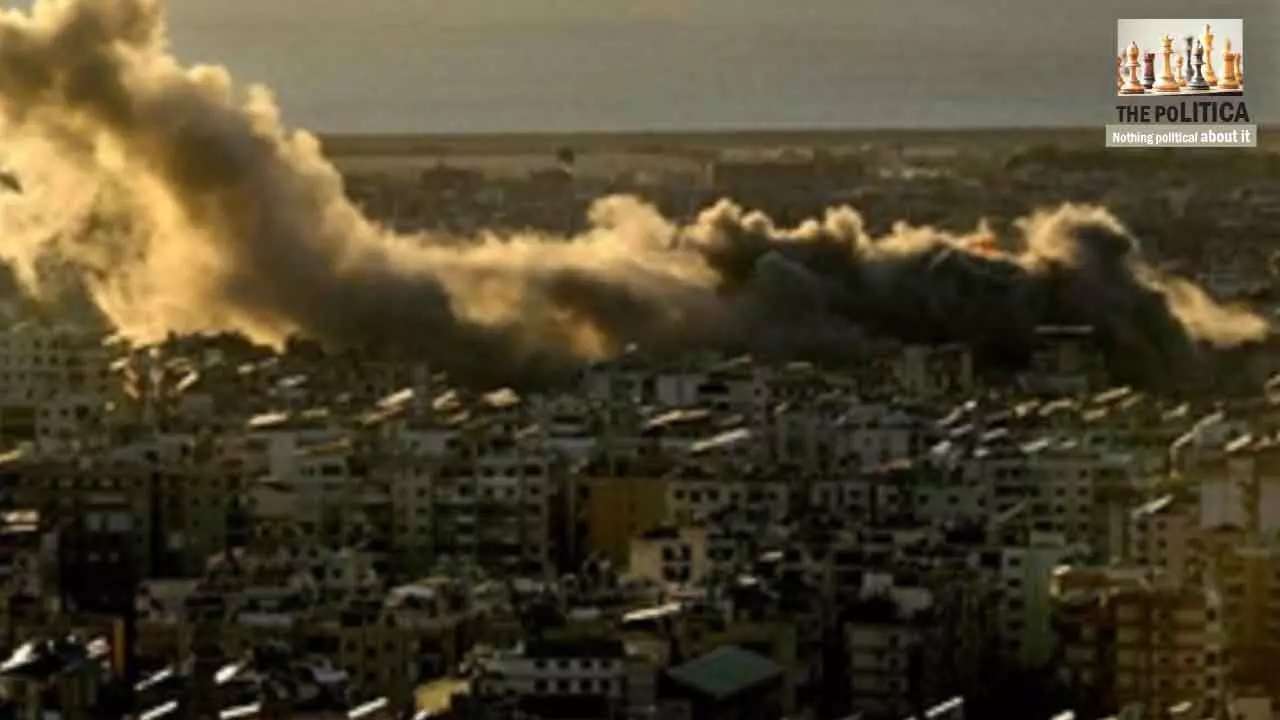Post Cold War Era: India Sees A Multipolar World Order
The use of social media as an instrument for psychological warfare, a misinformation campaign against a regime, and the spread of radicalisation, has also become rampant
Post Cold War Era: India Sees A Multipolar World Order

It seems possible that the US hoped to wear down Russia with the economic burden of the military confrontation with Ukraine like what had happened in the past -- in the case of the Soviet military occupation of Afghanistan
The end of the Cold War marked the beginning of an era where a frontal military attack was giving way to cross-border terror attacks, externally instigated insurgencies, and cyber attacks on the economic lifelines of the opponent.
India has witnessed covert offensives of all these kinds.
The use of social media as an instrument for 'psychological warfare', a 'misinformation campaign' against a regime, and the spread of 'radicalisation', has also become rampant.
The two major military conflicts of our times -- the Ukraine-Russia confrontation that began in February 2022 and the Israeli action in Gaza in retaliation against October 7, 2023, attack of Hamas on Israel, have many features of a 'proxy war'.
Russian President Vladimir Putin was keen to point out that the military intervention of Russia in Ukraine was not an act of 'war' but a move to protect the interests of the Russian-speaking population in east and south Ukraine.
The Israel Defense Forces (IDF) action in Gaza initially appeared to be a justifiable response to an outrageous terrorist act of Hamas across the Israeli border in which the terrorists killed some 1,200 Israelis and took 250 others, including women and children as hostages.
India took a measured stand on the Ukraine-Russia conflict suggesting that the security concerns of both sides had to be understood and acknowledged but calling for a peace negotiation all the same.
Similarly, India had no hesitation in denouncing the act of terrorism of Hamas but as the Israeli response began to cause large civilian casualties in Gaza it emphasised the need for stopping the military action and getting on with human relief operations.
Three trends have clearly emerged out of the era of proxy offensives that set in as a post-Cold War phenomenon. One is that an asymmetric war always tends to become a prolonged affair.
The response of the US-led West in support of Ukraine was in a proxy mode -- confined to the supply of monetary aid and despatch of war materials. NATO was in no hurry to induct Ukraine as a member -- the alliance would have been obliged to directly intervene against Russia if that membership was granted.
It seems possible that the US hoped to wear down Russia with the economic burden of the military confrontation with Ukraine like what had happened in the past -- in the case of the Soviet military occupation of Afghanistan.
The hopes of President Volodymyr Zelensky of Ukraine about repelling the Russian army were kept alive by the West through the promise of access to the higher missile systems but what was becoming increasingly evident is that the US-led West and consequently the Russians too, were getting adjusted to an unending military conflict -- which was basically at the cost of Ukraine in a way.
As regards the action of Israel in Gaza it was meant to be the chase of a 'radicalised' Hamas that had turned into a terrorist outfit indulging in underground operations in Gaza and relying heavily on subterranean tunnels.
The Israel-Hamas conflict has consequently become an infinite 'asymmetric' war between the Israeli Defense Forces and the Hamas militants.
An inevitable part of any protracted 'proxy war' is that unlike in an open armed attack on a country that will be repelled by the defence forces of the latter and which will cause death and injuries to only armed personnel by and large, an asymmetric conflict will result in an increasing number of civilian casualties.This is happening in Ukraine and Russia as the 'war' there is assuming the form of an exchange of drone attacks for bombing not only the defence establishments but also the heavily populated urban centres.
In the case of the Israel-Hamas confrontation, the retaliatory response of Israel is shaped by its announced mission of 'annihilating' Hamas.
The 'survival' instinct of Israel is no doubt getting strengthened by Prime Minister Benjamin Netanyahu's politically driven ultra-nationalism.
The civilian loss of life in Gaza has exceeded 35,000 and this is rightly an issue being critically viewed by the world at large despite the general disapproval of the 'terrorist' methodology adopted by Hamas in holding on to the hostages to exercise leverage.
Israel's present regime categorically rejects a 'two-state' solution which mutatis mutandis will have to provide a viable way out of the Palestinian problem in the long run. In any case, a halt to IDF operations and restoration of relief work in Gaza, are the first priorities there. On the whole, it can be said that more civilians die in cross-border terrorism and insurgencies than in regular warfare.
Proxy wars are fought with a limited objective like achieving a hold in an adjoining piece of territory or avenging a hostile act of the neighbour and are therefore likely to become a prolonged affair since the combating parties were willing to wait for their outcome -- because of the 'affordability' of this kind of conflict on one hand and a lack of fear of being held accountable for causing a global stir, on the other. India is rightly seeing in the post-Cold War era a multipolar world order and adopting the strategy of developing a relationship with all major powers based on mutually beneficial bilateral bonds that did not impede the cause of world peace and humanity.

